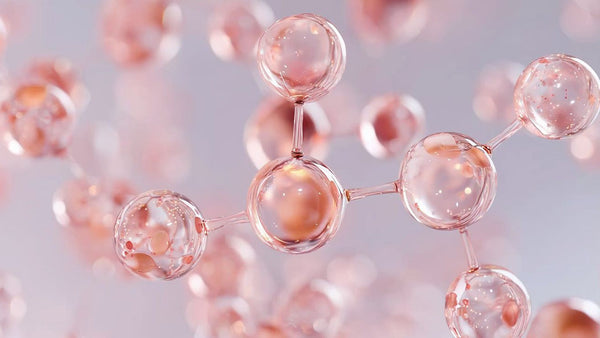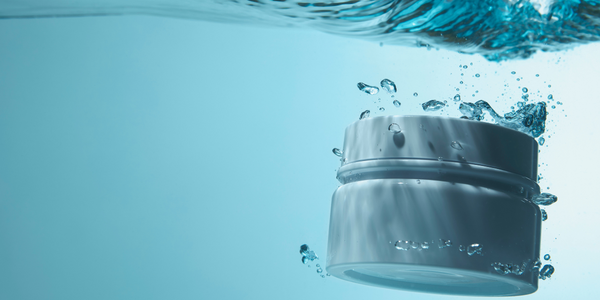You know those pesky scars from childhood scrapes or the stretch marks that appeared after a bit of weight fluctuation? So annoying, right? And no matter how many creams or oils you’ve tried, they just don’t seem to budge.
Here’s the thing—topical remedies can only do so much. To really tackle these skin concerns, you’ve got to work on them from the inside out.
That’s where collagen comes in!
This amazing protein supports your skin’s natural healing and repair processes. Let’s find out how!
What Is Collagen?
Collagen is the most abundant protein in the human body, found in skin, hair, nails, bones, and connective tissues. It provides strength, elasticity, and structure to the skin, playing a critical role in maintaining a youthful appearance. As we age, collagen production naturally declines, leading to sagging skin, fine lines, and a slower healing process.
Collagen supplements, particularly hydrolyzed collagen peptides, are an effective way to replenish collagen levels in the body. These peptides are broken down into smaller, easily digestible molecules that the body can absorb quickly.
Types of Collagen and Their Benefits
-
Type I Collagen: Found in skin, bones, and tendons, Type I collagen is essential for reducing scars and improving skin elasticity.
-
Type III Collagen: Commonly found alongside Type I collagen, it provides structure to the skin and supports the healing process.
Benefits of Collagen for Skin Health
-
Improved Skin Elasticity: Collagen enhances the skin’s elasticity, making it more resistant to stretching and tearing.
-
Enhanced Hydration: Collagen helps retain moisture in the skin, preventing dryness and promoting a healthy glow.
-
Faster Wound Healing: By supporting new tissue formation, collagen accelerates the healing process for scars and injuries.
-
Reduced Signs of Aging: Collagen minimizes the appearance of wrinkles and fine lines by improving skin firmness.
Understanding Scarring and Stretch Marks
Scarring
Scars form when the skin’s deeper layers are damaged, often from injuries, surgeries, or acne. The body produces collagen to repair the damaged tissue, but the new collagen fibers are often less organized, leading to visible scars.
Stretch Marks
Stretch marks occur when the skin stretches rapidly, such as during pregnancy, weight fluctuations, or growth spurts. This rapid stretching breaks the elastin and collagen fibers in the skin, leaving behind streaks that often appear red or purple initially and fade over time.
How Collagen Helps With Scarring
-
Promotes Collagen Remodeling: Supplementing with collagen peptides encourages the body to produce new, more organized collagen fibers, reducing the visibility of scars.
-
Supports Tissue Repair: Collagen aids in regenerating dermal tissues, speeding up the healing process.
-
Reduces Inflammation: Collagen contains amino acids like glycine, which have anti-inflammatory properties that can help calm the skin during healing.
How Collagen Helps With Stretch Marks
-
Increases Skin Elasticity: Collagen boosts the skin’s resilience, making it less prone to tearing.
-
Hydrates the Skin: Hydrated skin is more supple and less likely to develop stretch marks.
-
Stimulates New Cell Growth: Collagen supports the turnover of skin cells, helping fade existing stretch marks over time.
Choosing the Right Collagen Supplement
When selecting a collagen supplement, it’s crucial to prioritize purity and efficacy. Look for products with:
-
Hydrolyzed Collagen Peptides: These are easily digestible and absorbable.
-
Clinically Tested Formulations: Ensure the product is backed by scientific research.
-
Low Molecular Weight: Collagen with a molecular weight of <1000 daltons offers better absorption.
Complementing Collagen With a Healthy Routine For Better Results
To maximize the benefits of collagen, pair it with a holistic skincare routine:
-
Hydration: Drink plenty of water to support skin elasticity.
-
Balanced Diet: Include foods rich in Vitamin C, zinc, and amino acids to support collagen synthesis.
-
Regular Exercise: Improves blood circulation, aiding collagen distribution.
Collagen is a must-have for anyone looking to improve the appearance of scars and stretch marks. Replenishing the body’s natural collagen levels can support skin elasticity, hydration, and healing from within. With the right supplement and a commitment to a healthy lifestyle, achieving smoother, more resilient skin is well within reach.

























